A healthy brain is crucial for emotional well-being, regulating mood, and managing stress responses. Cognitive stimulation activities such as puzzles, learning new skills, and engaging in social interactions help maintain the brain and reduce the risk of age-related diseases. Protecting brain health is crucial to prevent neurodegenerative diseases like dementia and Alzheimer’s. Read below for the five best ways to keep your brain healthy.
Importance of maintaining brain health
Maintaining brain health is crucial as it is linked to overall well-being and cognitive functions. The brain serves as the controller of the body, overseeing various functions such as memory, decision-making, and emotions. Engaging in activities like regular exercise, maintaining a balanced diet, and ensuring peaceful sleep contributes to improved neuroplasticity—the formation and reorganization of synaptic connections.
Neuroplasticity plays key roles in maintaining homeostasis, processing sensory information, and controlling voluntary and involuntary movements, underscoring its significance for overall well-being. Given its central role in shaping an individual's identity, personality, and ability to navigate and interact with the outside world, the intricate mechanisms of the brain are fundamental to the human experience and serve as the foundation of human consciousness.
How to Improve Brain Health
The brain plays a crucial role in regulating thoughts, feelings, and actions, in addition to facilitating bodily functions. It facilitates cognitive processes like memory and problem-solving because it serves as the nervous system's command centre. The brain is essential for learning new information, forming connections, and adapting to it. Here are a few brain health tips
Eat brain health foods
Consuming foods that support brain health is crucial for cognitive well-being. Include the following brain-boosting foods in your diet:
|
Foods |
What’s in it? |
References |
|
Green leafy vegetables |
Kale, spinach, and broccoli are rich in vitamin K, beta-carotene, and folate, which help slow down cognitive decline. |
(Morris et al., 2017b) |
|
Fatty Fish |
Rich in omega-3 fatty acids, which help lower blood levels and prevent the accumulation of beta-amyloid proteins responsible for Alzheimer’s disease. |
(Yan et al., 2020) |
|
Berries |
Flavonoids in berries help in improving memory. |
(Whyte et al., 2019) |
|
Coffee |
Caffeine in coffee promotes central nervous system stimulation and blocks adenosine, a neurotransmitter responsible for sleep. |
(Lazarus et al., 2011) |
|
Walnuts |
Rich in fatty acids and alpha-linolenic acid, which helps improve memory, learning skills, brain speed, and mental flexibility. |
(Chauhan & Chauhan, 2020b) |
|
Dark Chocolate |
Cocoa in chocolate helps improve attention, verbal learning, and memory. |
(Martín et al., 2020c) |
|
Eggs |
Choline in egg yolks reduces inflammation and maintains memory and communication among brain cells. |
(Yamashita et al., 2023) |
Engage in mind workout
Like our body, our brain also requires care and a workout. To maintain body fitness, one strengthens their muscles, but to maintain brain fitness, one should improve memory, attention, brain speed, people skills, and intelligence. Play games such as Sudoku, jigsaw puzzles, word, number, and math games. These require various cognitive abilities that challenge your brain’s speed and memory. Meditate daily, learn any new skill, train your brain, and use all your senses so that you can strengthen your brain by focusing on smelling, touching, tasting, seeing, and hearing.
Sleep peacefully
Sleep is important for the body, aiding in the maintenance of pathways responsible for creating new memories, concentrating, and responding quickly. Before sleeping, gamma-aminobutyric acid (GABA) is released, which helps in relaxing the body and mind, facilitating the process of falling asleep. According to the Global Council on Brain Health (GCBH), sleeping for 7 to 8 hours a day helps maintain brain health as age increases. Sleep also plays a role in flushing out toxins from the brain.
Exercise regularly
Physical activity reduces the risk of dementia in older people, as revealed by the study (Omura et al., 2020). The research indicates that cognitive function declines as we age, with a more significant decrease observed in inactive individuals. Engaging in physical activity not only aids in thinking, learning, problem-solving, and emotional balance but also notably reduces anxiety and depression
Brain-Boosting supplements
Brain-boosting supplements, also known as nootropics, have been shown to enhance cognitive abilities such as memory, creativity, and focus. However, individual responses may differ, and the safety and efficacy of these supplements can vary. Before starting a new supplement regimen, it is essential to consult with a medical professional. Here are a few examples of such supplements.
- NMN- It reduces the risk of Alzheimer’s disease, reduces inflammation, increases mitochondrial production, and improves cognitive function.
- Trans-Resveratrol- Protects brain cells from free radicals and reduces the inflammation of brain cells.
- Spermidine-Helps reduce the toxicity and aggregation of amyloid proteins responsible for neurodegenerative diseases like Alzheimer’s. Also protects the nerves and nervous system from oxidative stress.
- Ca-AKG- It plays an important role in the detoxification of ammonia in the brain by reducing the levels of lactate dehydrogenase, and malondialdehyde, and reducing oxidative stress.
- SeneVit- It consists of quercetin and fisetin that help prevent oxidative stress, reduce lipid peroxidation, and inhibit the formation of Aβ proteins.
- Vitamin B- It plays a key role in maintaining healthy nerves and red blood cells. It improves memory and sharpens your cells.
- L-theanine- It affects certain chemicals in the brain like serotonin, and dopamine, which influence mood, sleep, emotion, and cortisol.
- Omega 3 fatty acids- It is found in fish oil, these fatty acids, particularly EPA and DHA, are essential for brain health and increase learning, memory, and blood flow in the brain.
How Does Decode Age Brain Health Bundle Help Improve Brain Health?
A potent and well-researched blend of supplements, the Decode Age Brain Health Bundle aids in enhancing brain function. Together, NMN and spermidine enhance the development of memory cells and eliminate toxins that may lead to neurodegeneration. In addition to preventing Parkinson's and Alzheimer's diseases, the bundle supports improved focus, cognition, and mental stability.
Conclusion
In conclusion, prioritizing optimal brain health is vital for overall well-being and cognitive performance. Sustaining a healthy lifestyle, characterized by nutrient-rich foods, mental exercises, adequate sleep, regular exercise, and supplements such as the Decode Age Brain Health Bundle, can fortify the mind and mitigate age-related cognitive decline and neurodegenerative illnesses. Taking proactive measures contributes to a resilient and healthy brain as we age.
FAQs
1) What foods are good for brain health?
Several foods are beneficial for brain health. Some of the best brain-healthy foods include:
Fatty Fish: Rich in omega-3 fatty acids, which support brain function and reduce inflammation.
Blueberries: Packed with antioxidants that improve memory and cognitive function.
Nuts and Seeds: Provide vitamin E, associated with a reduced risk of cognitive decline.
Leafy Greens: Rich in vitamins, minerals, and antioxidants that support brain health.
Whole Grains: Supply a steady source of glucose, the brain's primary energy source.
Turmeric: Contains curcumin, which has anti-inflammatory and antioxidant properties.
Dark Chocolate: Contains flavonoids that improve blood flow to the brain and boost cognitive function.
Including these brain-healthy foods in your diet can positively impact brain health and cognitive function.
2) Are brain-boosting supplements effective?
Brain-boosting supplements can provide additional support to brain health and cognitive function. However, their effectiveness varies among individuals, and not all supplements may work for everyone. Omega-3 fatty acids, vitamin D, B vitamins, Ginkgo biloba, and phosphatidylserine are some commonly used brain-boosting supplements. It's essential to consult with a healthcare professional before starting any supplementation to determine if they are suitable for your specific needs and to ensure they don't interact with any medications.
3) Can brain health be improved at any age?
Yes, brain health can be improved at any age. The brain has the remarkable ability to change and adapt, known as neuroplasticity. Engaging in brain-boosting activities such as mental stimulation, regular physical exercise, and a brain-healthy diet can enhance cognitive function and support brain health at any stage of life. While it may be easier to develop and maintain brain-healthy habits earlier in life, it's never too late to start improving brain health and reaping the benefits of a sharper mind.
4) Can brain exercises and puzzles improve cognitive function?
Yes, brain exercises and puzzles can indeed improve cognitive function. Regular mental stimulation, such as solving puzzles, engaging in cognitive games, reading, learning new skills, and practising memory exercises, can enhance brain function and memory. These activities challenge the brain, create new neural connections, and strengthen existing ones, supporting cognitive preservation. However, it's essential to have a well-rounded approach to brain health, incorporating other factors like a healthy diet, physical exercise, and quality sleep, for optimal results.
5 Are there any specific brain-healthy foods that can boost memory?
Yes, certain brain-healthy foods can boost memory and cognitive function. Blueberries, with their rich antioxidant content, have been linked to improved memory. Additionally, fatty fish like salmon, trout, and sardines, which contain omega-3 fatty acids, are associated with enhanced memory and cognitive abilities. Dark chocolate, when consumed in moderation, has flavonoids that may improve blood flow to the brain and support memory. Consuming a balanced diet that includes these brain-boosting foods can positively impact memory and overall brain health.
6) Can brain-healthy habits help prevent age-related cognitive decline?
Yes, adopting brain-healthy habits can help prevent age-related cognitive decline. Engaging in mental stimulation, maintaining regular physical exercise, getting enough quality sleep, and following a brain-healthy diet can support brain health and cognitive function as you age. These habits promote neuroplasticity, reduce inflammation, improve blood flow to the brain, and protect brain cells from oxidative stress, all of which contribute to better brain health. While age-related cognitive decline is a natural part of the ageing process, incorporating brain-healthy habits can slow down the decline and help maintain cognitive abilities for longer. It's never too early to start taking care of your brain health to enjoy a more vibrant and fulfilling life as you grow older.
References
Morris, M. C., Wang, Y., Barnes, L. L., Bennett, D. A., Dawson-Hughes, B., & Booth, S. L. (2018). Nutrients and bioactives in green leafy vegetables and cognitive decline: Prospective study. Neurology, 90(3), e214-e222.
https://doi.org/10.1212%2FWNL.0000000000004815
Yan, L., Xie, Y., Satyanarayanan, S. K., Zeng, H., Liu, Q., Huang, M., ... & Su, H. (2020). Omega-3 polyunsaturated fatty acids promote brain-to-blood clearance of β-Amyloid in a mouse model with Alzheimer’s disease. Brain, Behavior, and Immunity, 85, 35-45.
https://doi.org/10.1016/j.bbi.2019.05.033
Whyte, A. R., Cheng, N., Butler, L. T., Lamport, D. J., & Williams, C. M. (2019). Flavonoid-rich mixed berries maintain and improve cognitive function over a 6 h period in young healthy adults. Nutrients, 11(11), 2685.
https://doi.org/10.3390%2Fnu11112685
Lazarus, M., Shen, H. Y., Cherasse, Y., Qu, W. M., Huang, Z. L., Bass, C. E., ... & Chen, J. F. (2011). Arousal effect of caffeine depends on adenosine A2A receptors in the shell of the nucleus accumbens. Journal of Neuroscience, 31(27), 10067-10075.
https://doi.org/10.1523%2FJNEUROSCI.6730-10.2011
Chauhan, A., & Chauhan, V. (2020). Beneficial effects of walnuts on cognition and brain health. Nutrients, 12(2), 550.
https://doi.org/10.3390%2Fnu12020550
Martín, M. A., Goya, L., & de Pascual-Teresa, S. (2020). Effect of cocoa and cocoa products on cognitive performance in young adults. Nutrients, 12(12), 3691.
https://doi.org/10.3390%2Fnu12123691
Yamashita, S., Kawada, N., Wang, W., Susaki, K., Takeda, Y., Kimura, M., ... & Matsuoka, R. (2023). Effects of egg yolk choline intake on cognitive functions and plasma choline levels in healthy middle-aged and older Japanese: a randomized double-blinded placebo-controlled parallel-group study. Lipids in Health and Disease, 22(1), 1-14.
https://doi.org/10.1186%2Fs12944-023-01844-w
Omura, J. D., Brown, D. R., McGuire, L. C., Taylor, C. A., Fulton, J. E., & Carlson, S. A. (2020). Cross-sectional association between physical activity level and subjective cognitive decline among US adults aged≥ 45 years, 2015. Preventive Medicine, 141, 106279.


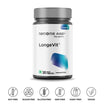
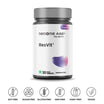
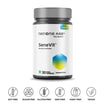
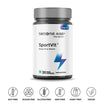
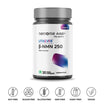
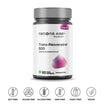
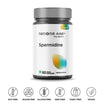
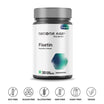
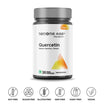
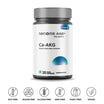
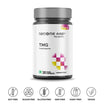
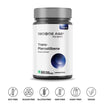
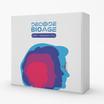

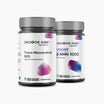
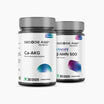
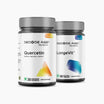
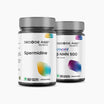
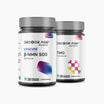
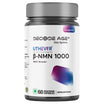
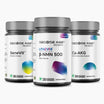
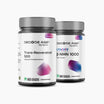
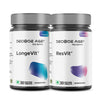
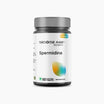
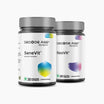
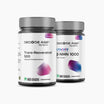
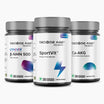
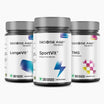
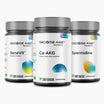
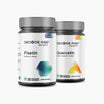
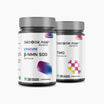
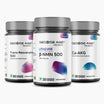
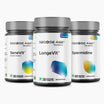
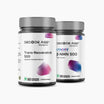



Leave a comment
This site is protected by reCAPTCHA and the Google Privacy Policy and Terms of Service apply.